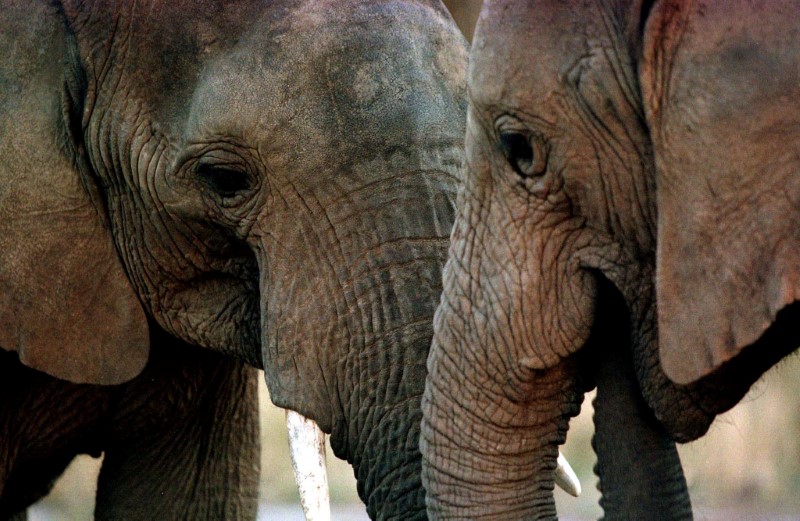Image: A pair of elephants are seen at a park in Knysna, South Africa, July 12, 1999. REUTERS/Mike Hutchings/File Photo
By Ed Stoddard
JOHANNESBURG (Reuters) – Africa’s elephant population fell around 20 percent between 2006 and 2015 because of a surge in ivory poaching, the International Union for Conservation of Nature (IUCN) said in a report on Sunday.
Switzerland-based IUCN is regarded as the most authoritative source on wild fauna populations and the report’s release at a U.N. conference on the global wildlife trade will lend a sense of urgency as some countries seek to keep the global ivory trade shut while others want to reopen it.
“This is yet another set of data clearly indicating that governments must take all necessary actions to address the crisis,” said Susan Lieberman, head of international policy for the Wildlife Conservation Society.
The IUCN, which drew on a range of estimates and census data, said it now had a fairly accurate count of 415,000 elephants in Africa in the areas where extensive surveys could be taken, down from over 500,000 in 2006.
There are a number of regions where systematic surveys could not be taken and so it is difficult to say what is happening to elephants in such places. These include South Sudan, Liberia and savannah areas of Central African Republic.
Losses in some countries have been staggering. Tanzania, which relies heavily on wildlife tourism, saw a 60 percent decline in its elephant population.
“The surge in poaching for ivory that began approximately a decade ago – the worst that Africa has experienced since the 1970s and 1980s – has been the main driver of the decline,” the IUCN said.
Elephant poaching has risen to meet red-hot demand among fast-growing consumer markets in Asian economies such as China’s, where ivory is a coveted commodity used in carving and ornamental accessories.
The IUCN noted that southern populations in “Namibia, South Africa and Zimbabwe are stable or increasing, and there is evidence of elephant range expansion in Botswana.”
But poachers are also training their guns on southern Africa with big declines noted in Mozambique, it said.
Namibia and Zimbabwe have submitted proposals to the U.N.’s Convention on International Trade in Endangered Species (CITES), which is meeting in Johannesburg, seeking permission to lift a global ban on the ivory trade so they can sell stockpiles.
This is opposed by other African nations such as Kenya which fear that illicit ivory can be laundered with clean supplies and that it could stimulate demand for a commodity which has one main source – a dead elephant.
(Editing by James Macharia and Mark Potter)
Copyright 2016 Thomson Reuters. Click for Restrictions.


